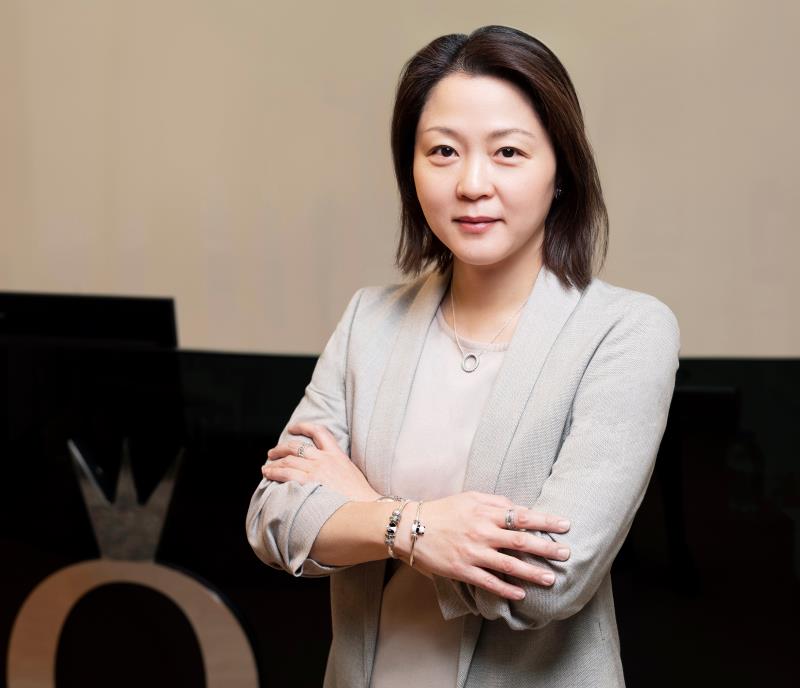Offline or online, jewelry shines


Geena Tok shapes Pandora's strategy to enter new markets beyond top Chinese cities
Geena Tok, 46, believes two qualities can hold any senior corporate executive in good stead: resilience and the courage to be more innovative in pushing new products into the market.
A veteran leader in the retail space, she allows the two qualities to inform her eight-month-old job as the managing director of Pandora Jewelry China.
Tok visits shops of all shapes and sizes in many locations to gain firsthand experience of the local factors. This courage to pay attention to the ground reality has helped her to draw useful insights, which are now shaping the Danish jewelry brand's plans to expand its store number in China from over 200 now to around 260 by 2022.
"Top-tier cities remain our priority markets," she said, noting second-tier cities like Chengdu are also key to long-term success as the brand sees opportunities in many tourist spots and shopping malls.
"Other major cities such as Nanjing are also ideal to develop our business because they are supported by well-developed high-speed railway networks. There are several cities connected to Nanjing by 20-minute high-speed train rides. Our stores in Nanjing can serve consumers living in surrounding cities," Tok said.
"A lot of people buy to celebrate something. So we see the opportunities in some of those next level cities, which have grown much faster."
In her opinion, there are new cities emerging where conditions may not be ready for branded jewelry shops yet. Pandora will be there when infrastructure is really well-developed. In the meantime, the brand will focus on using digital tools to reach out to lower-tier markets across the country.
"We will continue to create a balance between physical stores and digital stores, as a large number of consumers use smartphones to explore things," she said.
Though born and raised in Singapore, the mother of two has been living out of the country for years, having spent a long time in countries such as Thailand, India and the United States. She has been working and living in Shanghai for the last eight years.
"We don't see a trend of people buying traditional gold jewelry for occasions like weddings. In the past, people would visit certain places to buy it as they didn't have many options," she said. "The new generation doesn't do that anymore. They have their own point of view how they want to express themselves."
Supported by its factories in Thailand and the in-house designer team in Denmark, as well as the growing purchasing power of China's millennials (those born in the 1980s and 1990s), Pandora saw its sales revenue rise 26 percent year-on-year to 2 billion yuan ($297 million) in China last year. As a market, the country ranked third by sales volume after the United States and the EMEA (Europe, the Middle East and Africa).
When compared with other markets, the China market has consumers who are willing to try different colors, Tok said. In some countries, where consumers are a little bit more mature, they stick to silver and gold.
Many Chinese customers prefer jewelry containing both gold and silver, which is an interesting distinction, she said.
Based on Chinese culture and the new consumption trend, Tok and her team introduced the peach blossom series with many Pandora Rose and Silver products, including necklaces and earrings, exclusively for the China market in early April. They plan to bring more products that are specifically designed for the country.
The Danish jewelry manufacturer entered the Chinese market in 2010 with its local head office located in Shanghai. Founded in 1982, the Nasdaq - and Copenhagen-listed group has 27,300 staff worldwide. Around 13,200 of them are located in Thailand.
The Pandora products are sold in more than 100 countries and regions via 7,800 points of sale, including more than 2,400 concept stores.
Even though a lot of brands are aping its popular products like charms and bracelets, the company's focus remains not on fighting battles for intellection property protection but on further diversifying its product designs so as to introduce new elements into other jewelry.
"Copycat designs are a compliment. They only can push us to be more creative," she said, adding she has seen more copycats in the sportswear and footwear segments where she had worked.
"Chinese consumers, especially millennials, want to enjoy life... they care about their individuality and love to travel, and when it comes to shopping in both online and offline channels, they have unique tastes," said Guo Xin, a marketing professor at Beijing Technology and Business University.
To woo them, many global brands from jewelry, fashion and cosmetics sectors have already allocated more financial resources to new product design, marketing and are forming new cross-industry partnerships with other businesses, said Guo.
On a personal note, Tok said she enjoys reading English literature, outdoor recreational activities and spending time with her children during her spare time.



































